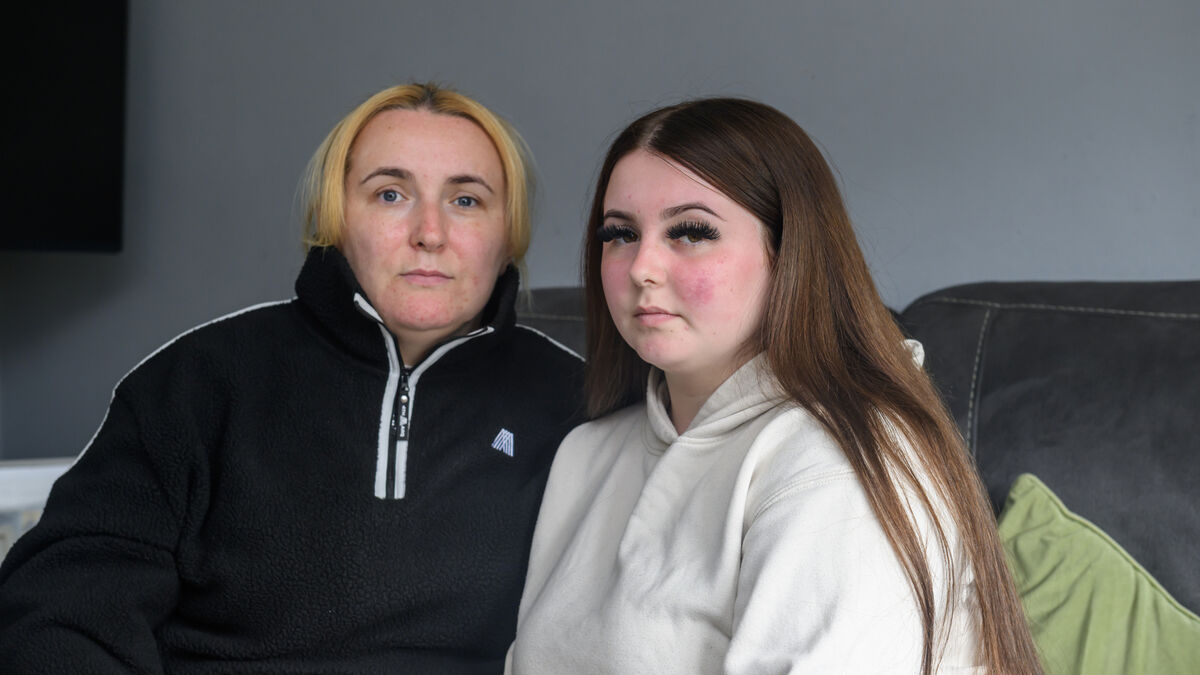A Mother’s Fight for Better Endometriosis Care in Ireland
A mother from Kerry is calling for urgent improvements in endometriosis services across Ireland after her teenage daughter endured a three-year journey through multiple hospitals in Munster and Spain before finally receiving a diagnosis in Romania. The condition, which affects approximately one in ten girls and women globally, is often referred to as the “missed disease” due to the long time it can take to diagnose.
Lorraine Fitzgerald, whose 16-year-old daughter Kaysey has been battling symptoms such as severe stomach cramps, vomiting, back pain, and heavy menstrual bleeding since she was 13, believes that while awareness of endometriosis is growing in Ireland, more action is needed.
“Endometriosis is being spoken about a lot recently in Ireland, but that talk needs to be followed with action,” Lorraine said. She highlighted that on the day they traveled to Romania, Kaysey was one of only three Irish women at the clinic that day.
Struggles with Diagnosis and Misdiagnosis
Kaysey’s medical journey began at University Hospital Kerry, where she was later referred to Cork University Hospital (CUH) and Cork University Maternity Hospital (CUMH). Over the years, she underwent numerous scans and tests, leading to diagnoses of ovarian cysts, kidney stones, and ovulation pain. At one point, a female doctor told her that her symptoms were “all in her head.”
The impact on Kaysey was significant. She stopped eating, had trouble sleeping, and missed school, raising concerns about her mental health. Her family eventually sought help from their GP, who supported them in applying for the EU Treatment Abroad Scheme. While the Health Service Executive (HSE) reimbursed medical costs, it did not cover travel or accommodation, forcing the family to take out a credit union loan.
Lorraine, a school support assistant, had to turn down work to accompany her daughter, while her husband managed his job and cared for their youngest child.
Diagnosis in Romania
After being told in Spain that Kaysey was too young for an endometriosis diagnosis, the family made the difficult decision to travel to a specialist clinic in Romania. There, an MRI scan revealed endometriosis in two locations. Although doctors prescribed a new painkiller, they warned that a definitive diagnosis would require laparoscopy surgery.
Lorraine described the experience as “madness” that should not have been necessary. She expressed disappointment with recent Dáil discussions on the issue, calling them “very disheartening.”
Current Treatment and Support
The HSE has not commented directly on Kaysey’s case but emphasized that care for teenagers suspected of having endometriosis typically starts with general practitioners. This may include painkillers and the contraceptive pill, which are considered first-line treatments regardless of age.
Girls can be referred to specialized gynaecological services under Children’s Health Ireland. Laparoscopy is recommended for a definitive diagnosis, and patients are counselled on the associated risks.
Aftercare can be provided by any HSE service for those who receive treatment abroad. New clinical guidelines published in June aim to support the rollout of a national endometriosis service, though delays have raised concerns among advocates.
National Framework and Ongoing Challenges
The National Framework for endometriosis was expected last year but has faced delays. The HSE is currently engaging with GPs through the Irish Medical Organisation, with discussions reportedly starting just weeks ago as the final stage of the process.
A spokesperson for the HSE emphasized the importance of raising awareness of endometriosis symptoms and promoting the guidelines to healthcare professionals. A public awareness campaign and updated patient resources are expected soon.
“Endometriosis is a difficult condition to diagnose and treat because of the variation in how it presents, which impacts both physical and mental wellbeing,” the spokesperson said. “The time to diagnose also varies due to its ambiguous symptoms.”
Improvements in Access to Care
Cork University Hospital, Cork University Maternity Hospital, and University Hospital Kerry are part of HSE Southwest. Newly referred patients are now seen at the CUMH Supra-regional Endometriosis Centre within 12 weeks. However, staffing challenges remain, with recruitment complicated by the need for specialized skills.
“In the interim, patient care plans are being prioritized and managed by the extended CUMH interdisciplinary team to ensure continuity of care and minimize delays,” a hospital spokesperson said.







